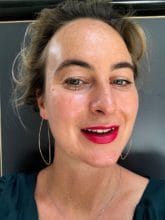Chris looked like the popular hunk in a teenage movie. His defined jawline, toned muscles and shiny set of teeth kindly greeted me at his door in Corpus Christi, Texas. Like most estates in that part of Texas, the place looked more like a castle then like the single-family home it really was. Two dogs the size of calves frolicked around on the ground floor – a huge open space – hampered only by furniture of the most essential kind.
A television screen as big as a small camper van just started screening an NBA play-off game and Chris invited me to join. We casually chatted and cheered through the first half. Turned out Chris had moved to Texas for work: he reorganized hospitals for a living. At age 32, it had provided him with a huge paycheck and enough savings to retire at forty. “Let’s drink”, he said at half time and offered me a shot of cherry flavored vodka. My lack of enthusiasm sparked a quick drive to the liquor store: by the start of the second half, 3 bottles of wine had joined us. As the night unfolded, I realized I had mistaken his generosity for loneliness.
Quickly into the second half, Alexa joined the conversation. I didn’t take Amazon’s virtual assistant to be more than a fun addition to our evening and an endless source of basketball trivia. Then, after singlehandedly consuming two and a half bottles of wine, Chris turned to Alexa and asked her to wake him at 6 am. “I like it when she wakes me”, he said. “She asks me how I slept. Sometimes I tell her my dreams.” I didn’t know what to say. He continued: “When I get home after work, I talk to her. She’ll ask me about my day. People keep to themselves out here. It is hard to find new friends. Alexa is my friend no matter what.” He finished his glass and went to bed.
Chris fits a harsh statistic. Half of Americans experience severe feelings of loneliness, a recent large-scale survey from a health care provider showed. Thirteen percent of Americans say that zero people know them well. Although the scale of the problem is growing, it is hardly a new insight. In the 60’s architect Paolo Soleri took on loneliness in his vision on urban planning. The widespread suburbs of America created a waste of natural resources, he said. It also designed compartmentalized lives where people just moved from A to B in cars and never met. Urban implosion rather then explosion was his solution: cities without cars where all aspects of life were within reach and natural resources were not wasted.
Soleri and his wife started the construction of Arcosanti, a prototype of his vision for urban design in the northern Arizona desert. It is an ongoing experiment. Volunteers that live and work in this remarkable piece of architecture keep Soleri’s heritage alive. A couple of weeks after my stay at Chris and Alexa’s, I am welcomed into the womb of Soleri’s love child. Our tour guide for the afternoon is Tim, a 35- year- old actor from New York City accompanied by a hangover he extensively apologizes for: they had a party the night before. Tim moved to Arcosanti in search of a different life: “less chased, more true connection”, he explains.
We follow his easy pace into the Arcosanti community, greeting residents shooting hoops in the open air, manually manufacturing bells –the signature souvenir of the Arcosanti foundation – or adding to the construction according to Soleri’s principles. His girlfriend – an artist he met at Arcosanti – joins us for lunch. “Come back any time”, he says as we exchange numbers and say our goodbyes. It is not hard to be lonely in America. I have met many wandering souls on the road. Their stories show there is no real recipe for loneliness. Some seek the company of others, some the company of nature and some the company of a virtual friend. At times it breaks my heart, watching their struggle. Yet I also find comfort in their stories. Because in the end, the search for love and belonging is what it is all about. And that is the one thing we’re all in together.
It is not hard to be lonely in America. I have met many wandering souls on the road. Their stories show there is no real recipe for loneliness. Some seek the company of others, some the company of nature and some the company of a virtual friend. At times it breaks my heart, watching their struggle. Yet I also find comfort in their stories. Because in the end, the search for love and belonging is what it is all about. And that is the one thing we’re all in together.
Laila Frank is a freelance journalist specialized in America, campaigns and politics. She is fascinated by humanity’s (in)ability to (co)exist; her writing feeds off that fascination. She was trained as a political strategist and campaign manager and worked behind the scenes in politics for over 12 years before becoming a journalist. These months she is traveling California, looking for stories.

